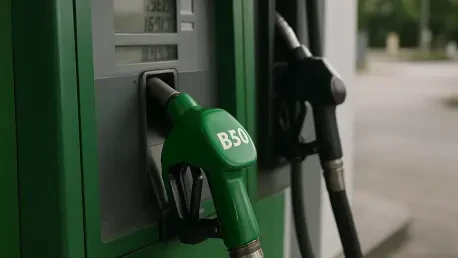Indonesia stands at a pivotal moment in its quest for energy security, with the upcoming nationwide road test of B50 biodiesel—a blend of 50% palm oil and 50% diesel—set to launch on December 3. This ambitious initiative, spearheaded by the Ministry of Energy and Mineral Resources, seeks to evaluate the fuel’s performance across a wide array of applications, from passenger vehicles and ships to agricultural machinery and power generators. Testing periods will span two to eight months, depending on the sector, with a commitment to transparency about any challenges, such as engine failures or equipment malfunctions. The move represents a significant step toward reducing reliance on imported diesel, a long-standing economic burden for the nation. As a leading palm oil producer, Indonesia sees this program as a way to leverage its natural resources for domestic benefit, potentially reshaping its energy landscape while supporting local farmers through increased demand for crude palm oil.
Testing the Waters of a Bold Energy Shift
The road test for B50 biodiesel marks a critical phase in Indonesia’s progressive journey with renewable fuels, building on earlier blends like B10 and the current B40. With full implementation targeted for the second half of 2026, the government aims to solidify energy independence by slashing diesel imports. Beyond the energy sector, there’s optimism about economic ripple effects, particularly for palm oil farmers who could see stabilized or even elevated selling prices due to heightened domestic consumption. The Ministry has emphasized that the policy enjoys high-level support, underscoring its strategic importance. However, the testing phase is not just about feasibility; it’s a public litmus test for the fuel’s reliability across diverse, demanding environments. Transparency in reporting issues during these trials will be key to building trust and ensuring that any technical hurdles are addressed before a nationwide rollout, setting a precedent for how renewable fuel transitions are managed in a resource-rich economy.
Balancing Energy Goals with Economic Realities
While the promise of B50 biodiesel is compelling, with potential savings of up to Rp172 trillion (around $11 billion USD) from reduced diesel imports, the economic outlook is far from straightforward. Experts have raised concerns about the policy’s broader implications, including the risk of straining government subsidies and driving up domestic cooking oil prices. A significant challenge lies in the potential loss of export revenue, estimated at Rp190 trillion (approximately $12 billion USD), as more palm oil is diverted to local fuel production. This trade-off could undermine Indonesia’s global competitiveness in the palm oil market if not carefully managed. Striking a balance between energy self-sufficiency and maintaining export viability remains a complex puzzle. Looking back, the initiative reflects both ambition and caution, as policymakers navigate these dual priorities. Moving forward, success will hinge on meticulous policy design, transparent outcomes from the trials, and strategies to mitigate economic downsides while maximizing benefits for energy security and farmer livelihoods.









